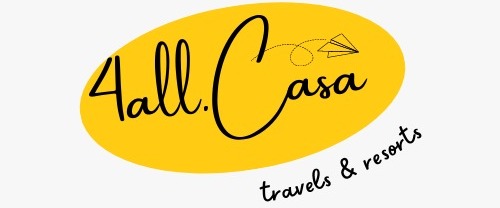
Resort operators and buyers are more and more collaborating to perform shared inexperienced objectives, an indication of rising curiosity in assembly environmental, social, and governance (ESG) commitments.
Take luxurious resort group Six Senses and its mother or father firm InterContinental Inns Group. Every Six Senses property embeds sustainability commitments, such because the adoption of inexperienced constructing requirements, the allocation of funds towards local people and environmental initiatives, and even the appointment of in-house sustainability professionals.
ESG is rapidly gaining significance as an funding and efficiency metric for lodge homeowners and broader stakeholders to align on,
says YouRee Park, Senior Affiliate, Inns Sustainability Lead, Asia Pacific, JLL Inns & Hospitality Group. Extra lodge operators, from worldwide chains to regional operators throughout completely different segments, are making carbon discount commitments, disclosing their progress on climate-related metrics, adopting greener manufacturers and technical requirements, and setting pointers on sustainable practices.
In most industries, organizations and buyers are below stress to decide to sustainability objectives that not solely generate value financial savings and efficiency enhancements, but in addition ceaselessly result in a higher longer-term valuation of their property.
For the lodge business, the frequent floor is being sought via lodge administration agreements, or HMAs, which historically solely included incentives tied to monetary efficiency.
Now, these inexperienced HMAs are more and more seen as an important device for lodge homeowners and operators to carry one another accountable to ESG targets, Park says.
Setting targets
Globally, the shortage of a standardized framework for ESG practices within the motels sector past science-based goal initiatives is among the key components stalling progress on the adoption of inexperienced HMAs.
Luxurious resorts and nature retreats have typically led the best way on embedding sustainability of their working tradition and efficiency metrics, with homeowners and operators on this phase seeing it as being basic to their ideas and expertise,
says Xander Nijnens, Senior Managing Director, Head of Resort Advisory & Asset Administration, JLL Inns & Hospitality Group.
To make certain, it’s nonetheless early days for the widespread adoption of ESG metrics in HMAs, with huge variations throughout nations and areas on sustainability focus and regulation.
In Europe, as an illustration, the impetus to undertake inexperienced HMAs comes from institutional and company buyers with net-zero objectives who’re keen to fork out a premium for greener property,
says Nijnens.
Conversely, in Asia, lodge operators are sometimes those taking the lead on ESG as a result of lodge homeowners, predominantly non-public buyers, have tended to prioritize effectivity and profitability,
he says.
Within the constructed atmosphere exterior of the motels sector, there are clear ESG rules and standards to work towards. As an example, the industrial workplace sector has been setting the tempo, with 42% of occupiers and huge builders throughout Asia Pacific adopting inexperienced leases final yr, JLL information reveals.
This hole between the sustainability dedication in each sectors stems from the completely different demand patterns from the end-user, he says.
When evaluating a brief lodge keep to a five-year lease, the latter represents a extra vital value to the enterprise,
says Nijnens. Which means choice makers shall be extra diligent about their selections and shall be extra inclined to choose a inexperienced asset as in comparison with a lodge visitor.
However even with the proper requirements in place, homeowners and operators might nonetheless face challenges in measuring sustainability efficiency. The method includes setting and agreeing on asset-specific targets that usually entail capital expenditure (CapEx) and working bills (OpEx).
It’s robust for an proprietor to set vitality consumption targets throughout all their properties as a result of the start line of each asset is completely different,
says Nijnens. As an example, the distinction in effectivity of operations between a brand new construct and a 30-year-old property is like night time and day.
A standard purpose
One profitable instance highlighted in JLL’s analysis is the HMA signed between Australian funding supervisor Salter Brothers and motels big Accor to handle a portfolio of 11 motels in Australia.
The settlement incorporates clear, outlined ESG targets, together with inexperienced vitality procurement, waste discount, and workers range, all of that are tied to tangible industrial outcomes.
With out a unified world commonplace on ESG for the motels sector, HMAs stay the best choice for homeowners and operators to agree and commit on sustainability targets, Park says.
Inns, which function across the clock, have the best vitality depth at 293 kWh/sqm in comparison with sectors comparable to workplace (181 kWh/sqm), retail (152 kWh/sqm) and residential (124 kWh/sqm), based on International Actual Property Sustainability Benchmark (GRESB) information.
But there are few buyers in Asia appearing on the environmental and social points of sustainability on a bigger scale, with most centered on assembly compliance requirements, based on Nijnens.
Business reporting requirements, such because the Uniform System of Accounts for the Lodging Business (USALI), are evolving within the subsequent two years to include sustainability-focused metrics,
says Nijnens. The transparency and urgency will improve, giving homeowners an actual alternative to align with their operators earlier than the stress mounts.
